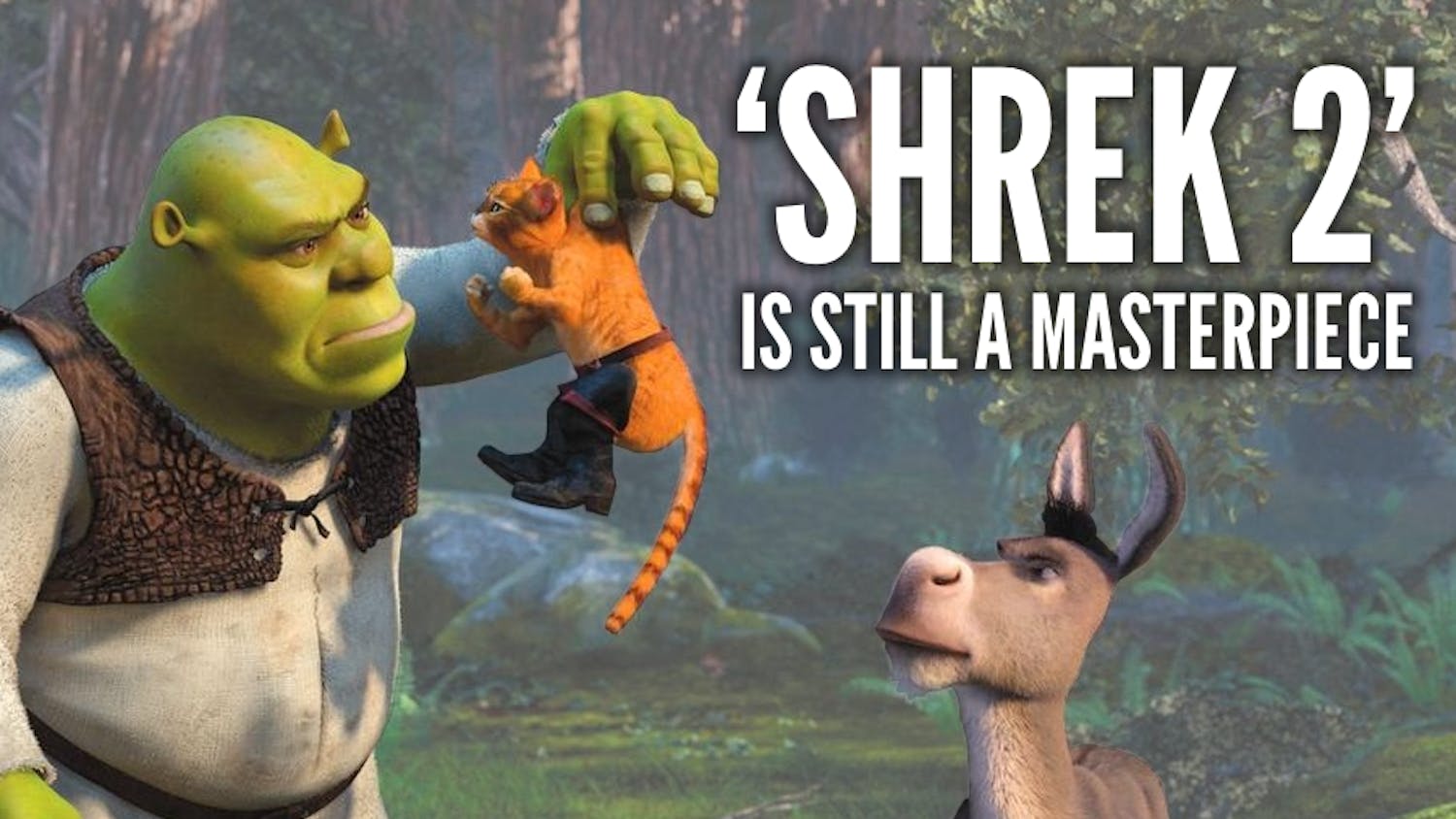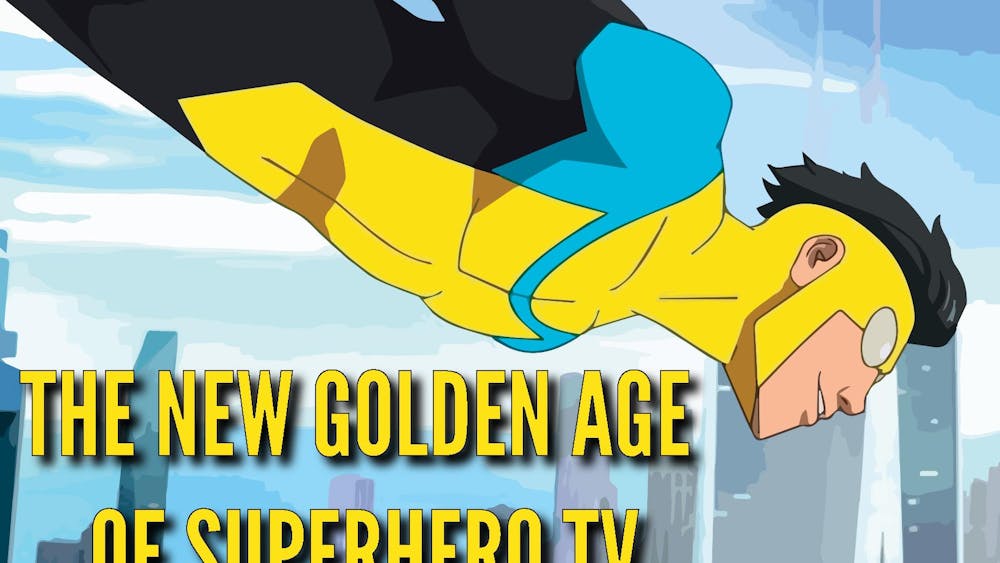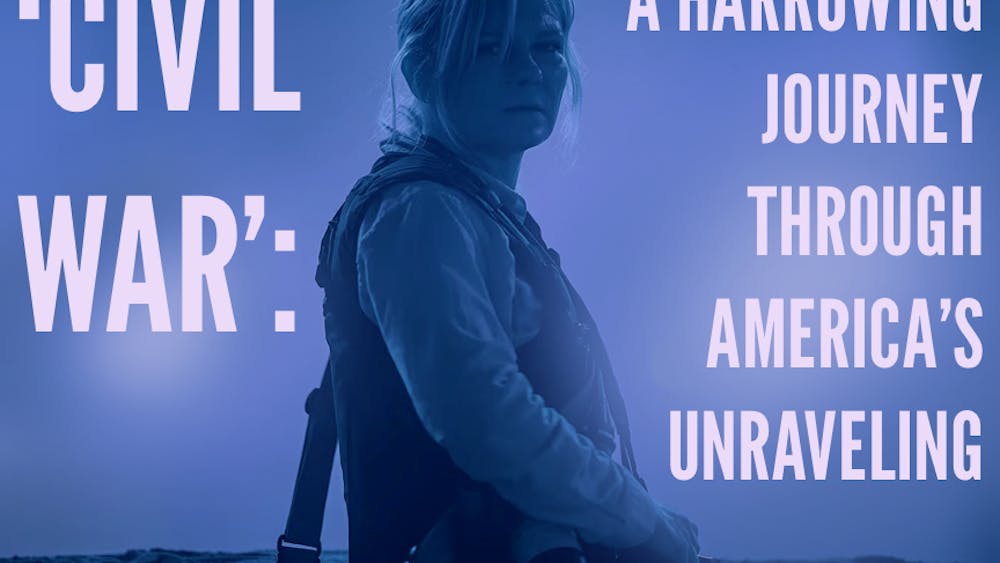
Traveling comedy troupe Second City’s performance at the University’s Washington Hall this past Friday, in many ways, attempted to capture the weight of the question of if one should feel alone in an age that bombards its denizens with constant feedback and constant company.
Second City is an improvisational comedy troupe based in Chicago, well-known as the launching pad of several of today’s comedy greats, including Steve Carell, Tina Fey and Stephen Colbert, to name a few. They have theatres in Los Angeles and Toronto in addition to a traveling crew that puts on shows all across the nation and abroad.
It would be an insult to the group, however, to assert that their work is merely comedy, as to do so would be to remove from it all measure of meaning. Elements of their Friday performance, rather, came together to form something more akin to a manifesto, an address of the 21st century’s elephant in the room — comically overblown and popped like a balloon animal. Our laughter, if nothing else, was self-defense.
Their numerous skits — some scripted, some totally improvised — ranged between topics as diverse as time travel, “burritophilia” and the marketing strategies of hygiene products. Whether explicitly or not, almost all of them touched on the topics of love, shame, awkwardness, desperation and abandonment in ways that for many hit unexpectedly close to home.
Yet the actors were unapologetic in their delivery. In one skit that runs for less than a minute, a troubled woman speaks to her therapist about her abandonment issues; her therapist proceeds to abruptly leave the room to answer a phone call. The response of the audience was somewhere halfway between laughter and flinch, like schadenfreude that feels all too familiar. Not that many of us, thankfully, have been abandoned in such a tactless fashion, but many of us have experienced rejection in much more subtle ways, which the troupe similarly lampooned.
In a scene that feels frighteningly realistic, for instance, a woman in her late 20s runs into her high school crush, and in attempting to ask him out, can’t prevent herself from digressing into a monologue of self-loathing in which feces, lesbians and cancer-afflicted children make frequent cameos. In another, a couple returns to the woman’s apartment after a date, only to be frequently disturbed by the wailing of the woman’s divorced and lonely sister; whether you identify with the woman or her sister, there was plenty in the scene with which to relate. Other skits deal with ultramodern concerns like the paranoia in watching “the three dots” appear on your phone's screen but never receiving the text, and the disappointment of being matched with creepy men who lie about themselves on dating websites.
As much as 21st century technology may bring us together, these skits assert, there is an enduring awkwardness about how we go about our relationships today. Perhaps, indeed, it is this forced proximity that causes us to step on each other and embarrass ourselves in characteristically modern ways.
But the mood seemed overall optimistic. A skit in which a group of contemporary adventurers travel back in time to tell racist jokes ends badly as they discover the very real bigotry that has shaped the American landscape over the years. They poke fun at our past, but they also suggest that we have come a long way — that is, until a cameo by politicomedian Donald Trump indicates that we still have a long way to go.
In the last skit before the show’s outro, troupe members sequentially reveal deep secrets about themselves at a slumber party. When the first and second reveal that they are lesbian and transgender, respectively, their confessions are met with virtually no reaction — which we are meant to interpret as a positive reaction — since “it’s 2016!” One could argue that here the show is at its most political, but they are just as likely trying to assert that respect and understanding are the ways of the day, prejudice and intolerance to be relegated to the distant past.
Second City’s performance was a “Where Are They Now?” of contemporary American sociology — are we a dilapidated version of “a simpler time” or an improvement upon it? The answer, this show seemed to assert, is complicated. But life is complicated. And it’s awkward, embarrassing and depressing … but it’s also just funny. Awkwardness is funny, as our roaring laughter reflected. Embarrassment is funny (to watch). Depression — well, mental illness is not a joke. But if we take the time to step back from fate’s chaotic ridicule and laugh together, we may yet make a cozier place for ourselves in this strange, strange world.













